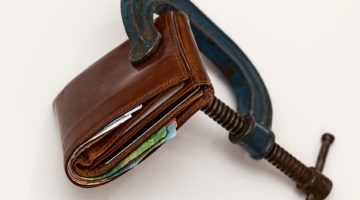One of the questions I get most often is how filing bankruptcy will impact someone’s credit score. I generally think making decisions based on how your credit score will be affected is a bad idea. But I understand concerns about the issue. Two studies from the Federal Reserve Bank of New York tries to shed some light on the question. A 2015 study found that while people who file bankruptcy generally start with lower credit scores than people who don’t,Read more
Is It Possible To Discharge Private Student Loans in Bankruptcy?
Did you know that in 2005 Congress added a new subsection to the Bankruptcy Code? It expanded the nondischargeability of student loans to include “any other educational loan that is a qualified education loan, as defined in section 221(d)(1) of the Internal Revenue Code of 1986, incurred by a debtor who is an individual.” What does this new subsection mean? This expanded the nondischargeability of student loans to private student loans. However, by limiting the exclusion to “qualified education loans,”Read more
Discharging Federal Student Loans Outside Bankruptcy
Federal student loan borrowers may have their loans discharged outside of bankruptcy under several different programs: Total and Permanent Disability Borrowers who can show a TPD may have their loans discharged. Regulations allow a borrower to request a discharge of loans with a doctor’s certification that they are unable to earn an income due to disability. Borrowers can also use a Social Security Disability award letter in lieu of the doctor’s certification. Veterans who the VA deem to be unemployableRead more
Federal Student Loan Repayment Options
Federal student loan borrowers facing financial hardship severe enough to not be able to make their loan payments have some options available to them. Rehabilitation or Consolidation Borrowers who default on payments can either “rehabilitate” their loan or “consolidate” into a new loan. After rehabilitation or consolidation, a borrower can get into an income based or income contingent repayment program. Rehabilitation requires borrowers to make nine monthly payments over a ten-month period. Payments must not be more than what isRead more
Bankruptcy: Your New Years Resolution?
One of the more common questions we’re asked is: “Should I file bankruptcy?” Ultimately, the choice is yours, but perhaps we can help make the decision easier. Let’s address this fact first: No one wants to file bankruptcy. You do it because you need to, and it will improve your life in the long run. So, how do you know when you need to? Below are some factors we’ve identified that may help: You’re being garnished or receiving correspondence fromRead more
A Debtor’s Christmas Carol
St. Louis bankruptcy attorney Wendell Sherk has published a riff on a popular Christmas song – Do You Owe What I Owe? We thought it worthy of sharing it with you this holiday season. (To the tune of “Do You Hear What I Hear?”) Said the neighbor to the young man, “Do you owe what I owe? Bills up to the sky, young man, Do you see what I see? A choice, a choice, waiting in the night A newRead more
Discharging Student Loans in Bankruptcy
The high cost of a college education forces many people to take out federal and private student loans. Federal loans offer several repayment options, including some tied to a borrower’s income with forgiveness of the remaining loan balance after 20 to 25 years. Private loans can sometimes be obtained at lower interest rates than those available on federal loans. But even with flexible repayment options and favorable interest rates, the number of borrowers defaulting on student loans is high. TheRead more
Private Student Loan Borrowers Facing Lawsuits
To pay for college many students borrow money from the federal government or a private lender. Student loans made or guaranteed by the federal government usually offer the best terms. Some payment plans for federal student loans are tied to a borrower’s income and offer forgiveness of the remaining debt after 20-25 years. Federal student loans also offer subsidized interest rates and more options to borrowers who default on their loans. The problem with federal loans is that there isRead more
Credit Scores and Bankruptcy
One of the common concerns people have about filing bankruptcy is what impact it will have on their credit score. Although I think people worry too much about credit scores, there is some legitimate concern about making sure credit reports and credit scores don’t hinder the purchase of a new home. In a 2007 SmartMoney.com article, the author says: “In many cases, the damage done isn’t nearly as bad as expected. Over the long run, obtaining a score high enoughRead more
Iowa Bank of Mom & Dad: Are your kids leaving you broke?
Every day we discuss financial problems with our clients. Usually we start the conversation by asking our clients to give us a brief history—how did they get to the point of needing to discuss a bankruptcy? Most of the time the answers wouldn’t surprise you; job loss, divorce, medical bills, lay-off/mandatory furlough. BUT, it might surprise you to hear how frequently we hear a story that involves financial aid to adult children…ultimately leaving dear ole’ mom & dad flat broke.Read more
- « Previous Page
- 1
- …
- 5
- 6
- 7
- 8
- 9
- …
- 14
- Next Page »












